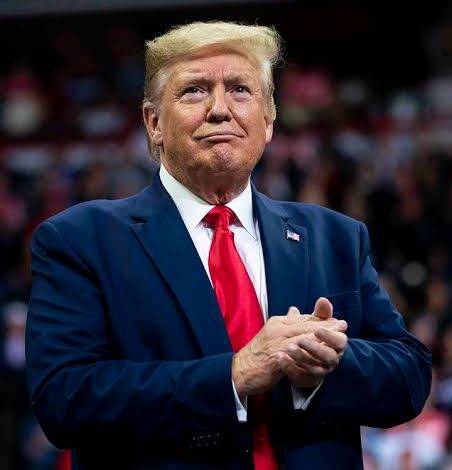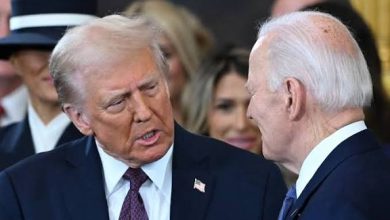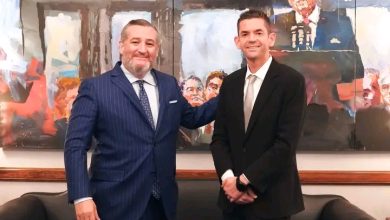Trump Administration Announces Move To Impose $100,000 Annual Fee On H-1B Visas

By Passman Akpos
The move announced on Friday, September 19, 2025, has triggered alarm across the U.S. technology sector and raised fears of an exodus of skilled foreign workers from the country.
President Donald Trump’s administration has announced plans to impose $100,000 per year on companies for each H-1B visa.
The move announced on Friday, September 19, 2025, has triggered alarm across the U.S. technology sector and raised fears of an exodus of skilled foreign workers from the country.
Commerce Secretary Howard Lutnick framed the measure as a way to prioritize American workers.
“If you’re going to train somebody, you’re going to train one of the recent graduates from one of the great universities across our land,” Lutnick said, according to REUTERS.
“Train Americans. Stop bringing in people to take our jobs,” he added.
The H-1B visa programme, which allows U.S. employers to hire highly skilled foreign workers, has long been a flashpoint in debates over immigration and labor.
The Trump administration has already pursued a wide-ranging immigration crackdown since January, but this represents its most aggressive step yet in reshaping temporary employment visas.
Major companies including Microsoft, JPMorgan Chase, and Amazon swiftly moved to warn their employees holding H-1B visas to stay in the U.S. or return before the new fee structure takes effect at midnight Saturday (0400 GMT Sunday).
“H-1B visa holders who are currently in the U.S. should remain in the U.S. and avoid international travel until the government issues clear travel guidance,” read an internal email sent to JPMorgan staff by law firm Ogletree Deakins, which manages the bank’s visa applications.
While the firms declined to comment publicly, internal memos reviewed by Reuters advised H-1B holders abroad to re-enter the U.S. immediately.
The H-1B program has long divided opinion.
Critics argue it allows companies to suppress wages and displace American workers, while supporters insist it brings in essential talent.
Tesla CEO Elon Musk, a naturalized U.S. citizen who once held an H-1B visa himself, defended the program, saying it helps keep American firms competitive.
Venture capitalist Deedy Das reportedly warned that the new fees “create disincentive to attract the world’s smartest talent to the U.S.”
Das added, “If the U.S. ceases to attract the best talent, it drastically reduces its ability to innovate and grow the economy.”
Immigration advocates also raised legal concerns about the fees.
Aaron Reichlin-Melnick, policy director at the American Immigration Council, reportedly wrote on Bluesky, “Congress has only authorized the government to set fees to recover the cost of adjudicating an application.”
The new fee structure could impose millions of dollars in extra costs on U.S. companies, particularly smaller tech firms and start-ups.
Analysts warned it may drive firms to relocate high-value work overseas, potentially undermining America’s competitiveness in the global race for artificial intelligence and other cutting-edge technologies.
“In the short term, Washington may collect a windfall; in the long term, the U.S. risks taxing away its innovation edge, trading dynamism for short-sighted protectionism,” said Jeremy Goldman, an analyst at eMarketer.
The financial markets reacted swiftly, as shares of Cognizant Technology Solutions fell nearly 5%, while U.S.-listed Indian tech firms Infosys and Wipro dropped between 2% and 5%.
The H-1B program currently issues 65,000 visas annually, with an additional 20,000 reserved for applicants holding advanced degrees.
Employers typically pay several thousand dollars in application fees, but the new policy would raise costs exponentially, charging $100,000 annually for up to three years.
India remains the largest beneficiary of H-1B visas, accounting for 71% of approvals in 2024, followed by China with 11.7%, according to government data.
In the first half of 2025 alone, Amazon and AWS secured more than 12,000 H-1B approvals, while Microsoft and Meta each obtained over 5,000.
Lutnick insisted that “all the big companies are on board” with the new fee.
“We’ve spoken to them,” he added, though many firms and foreign embassies reportedly declined to comment.
In addition to the H-1B overhaul, Trump signed an executive order creating what has been described as a so-called “gold card”, a pathway to permanent U.S. residency for individuals willing to pay $1million.





